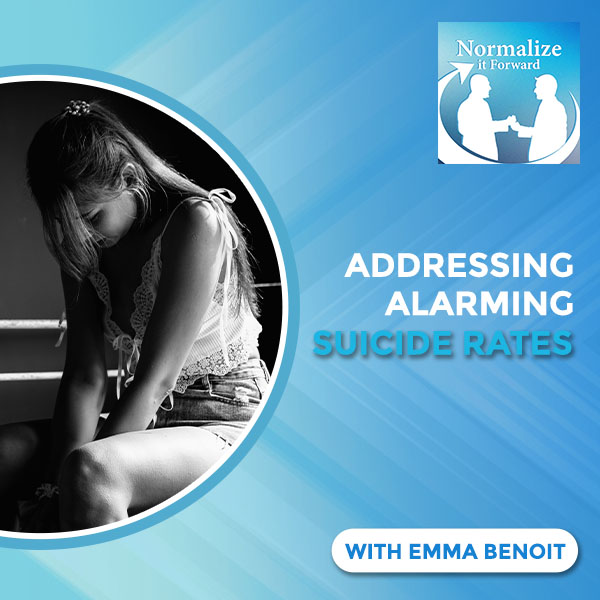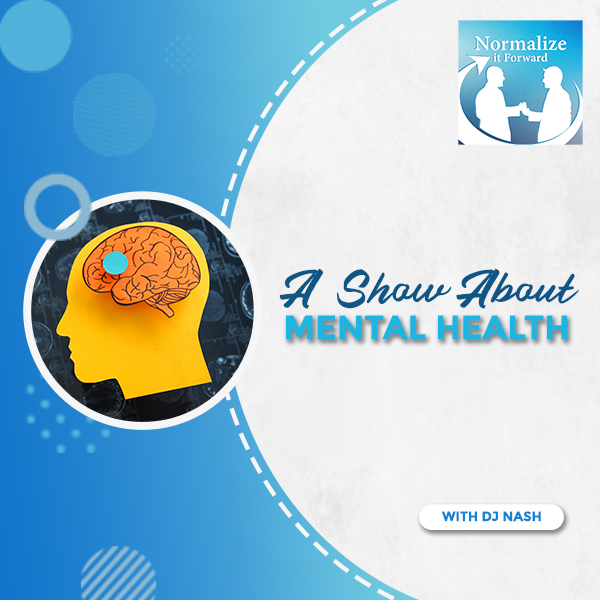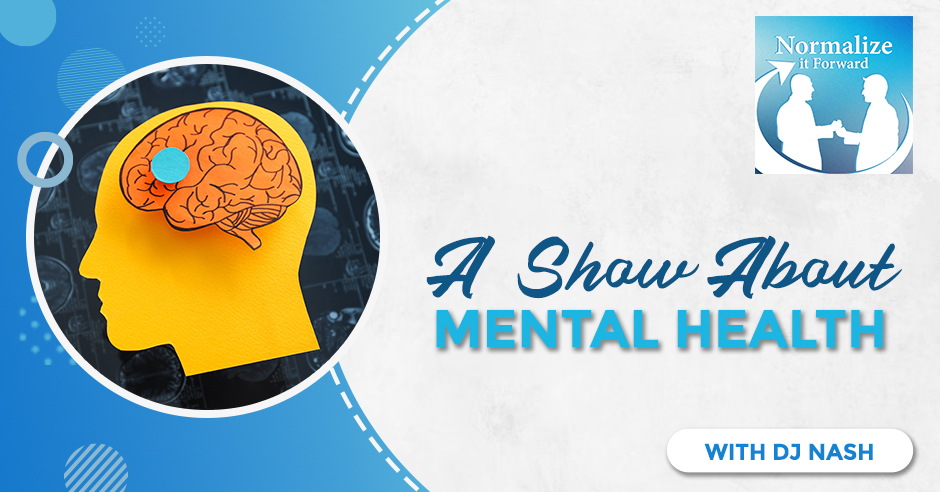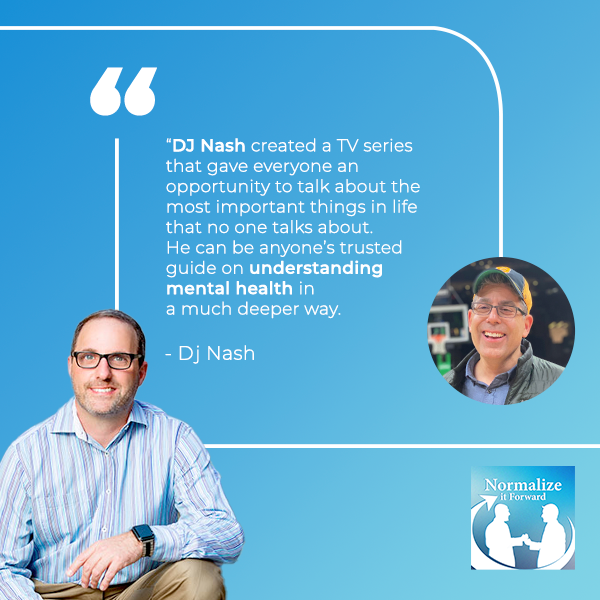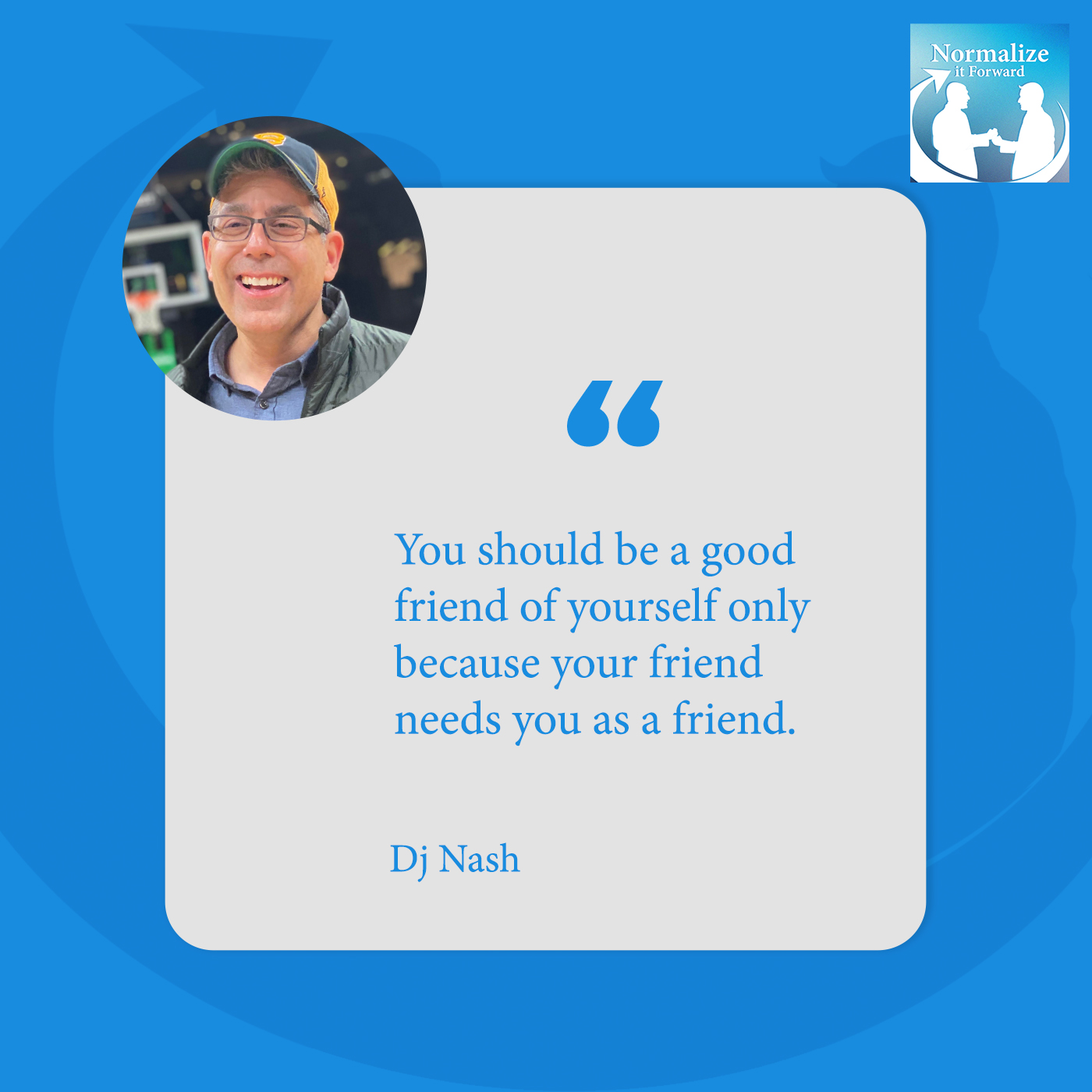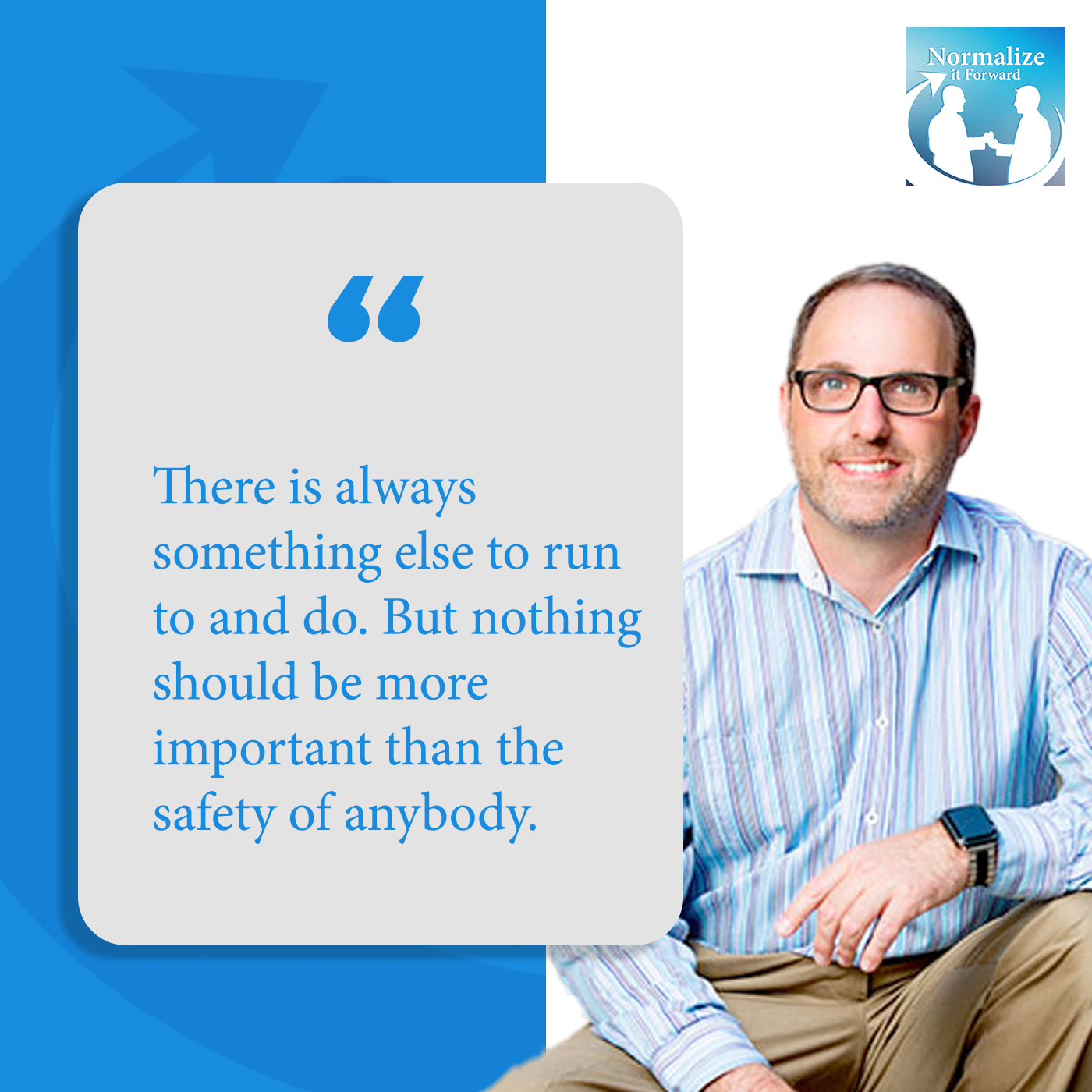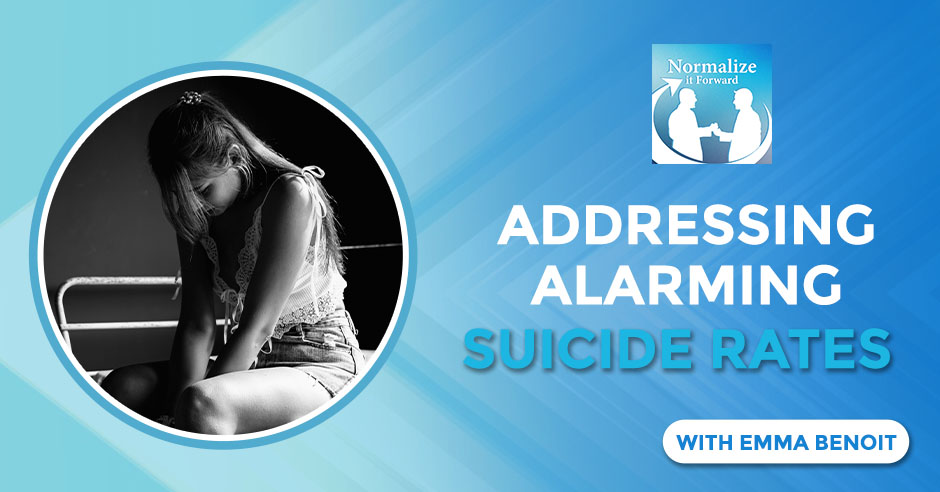
Suicide rates among young people have been skyrocketing for the past couple of years. Most of them are pushed to their limits because they do not have safe spaces to be vulnerable and support systems that make them stronger. Emma Benoit attempted to commit suicide at 16, and now she has dedicated herself to addressing this ever-growing problem. Joining Marc Lehman, she explains how she uses public speaking to eliminate the stigma surrounding mental health and young people’s obsession with creating a picture-perfect image of themselves. Emma also shares valuable tips on how parents can better support their children and help them take care of their mental health the same way they do with their physical bodies.
—
Watch the episode here
Listen to the podcast here
Addressing Alarming Suicide Rates With Emma Benoit
Welcome to the show. I’m so excited. We are meeting with Emma Benoit. I’m so excited for her to tell my audience a little bit about herself rather than me stumbling through her intro. I’m going to give her an opportunity and a moment to do that.
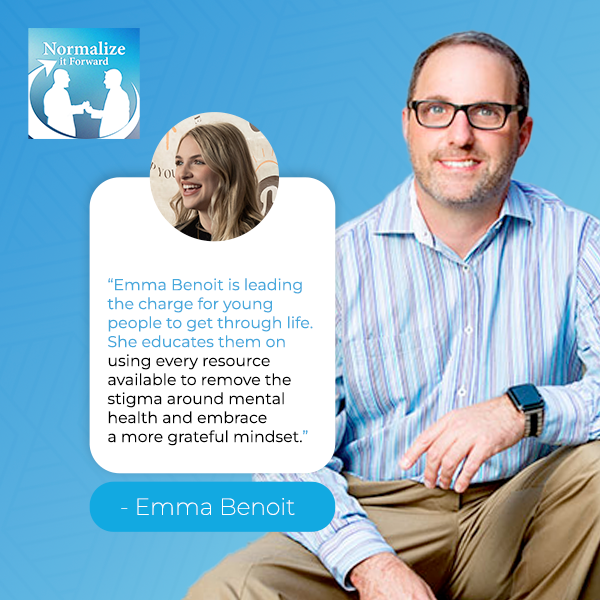
Emma, welcome to the show. It’s great to have you here.
Thank you so much for having me.
Introducing Emma Benoit
We are here to talk about mental health and wellness in general. I’m excited to have you on because you have a viewpoint that our audience will be excited to learn. Without further ado, maybe I could toss you the mic if it’s okay and have you tell my audience a little bit about yourself.
I am from Louisiana. I was born and raised here in Louisiana in a middle-class family. I was your typical picture-perfect-on-the-outside all-American girl. I was a cheerleader. I had a lot of friends. I came from a pretty happy home on the outside but internally, I was struggling with my mental health and my emotional well-being.
I struggled pretty consistently for several years without ever facing those struggles or feeling comfortable being vulnerable with someone and opening up and navigating those emotional challenges that I was facing. I struggled in silence for more of my upbringing than what I would’ve liked to struggle for. I was in an uncomfortable situation with my struggles because of that exterior image that I described.
Typically, when you think of someone who struggles with their mental health and their emotional well-being, automatically because of stigmas and stereotypes, there’s this image that people think of. Lower class, a separated family, maybe some abuse in the home, and things like that typically come to mind when most people think about these kinds of struggles with depression and anxiety. With my story looking completely different from that, I often felt a lot of shame around my struggles and my emotional challenges. It is because of that that I believed in the stigma and felt ashamed of my feelings so I never reached out for help.
I struggled in silence, trying to manage my own feelings, stressors, and fears all on my own. Ultimately doing that for far too long put me in a position where I started to develop some pretty nasty, negative thoughts. I started to experience suicidality and thoughts of suicide. I struggled with those thoughts for quite a while before attempting suicide myself. It got to be too much for me to navigate and manage all on my own.
Without the resources, the tools, or the support in place, I felt extremely hopeless. All of those struggles and feelings culminated and resulted in a suicide attempt when I was sixteen years old. It was the summer before my senior year of high school when I attempted to take my life. Fortunately, as I’m here speaking on your show, that attempt didn’t work. It was not successful. I’ve come on the most unpredictable but most gratifying journey since.
Getting to reflect on the way that I was processing hard things, the feelings I was having, and learning things that I wish I had learned prior to my attempt gave me this sense of purpose. I decided to use my lived experience and the things that I had overcome and gone through to try and raise awareness and start important conversations like these to educate people on the resources available to them and ultimately remove the stigma. That is my goal in sharing my story and my lived experience. It’s to remove that stigma that keeps so many people struggling in silence for far too long.
Let me say I am so glad that the attempt didn’t work. I’m sure many others who have met you along the way are as well. I knew you’d do a better intro than I would. I’m really glad you told us your story. One thing you didn’t add that I will is that you speak all over the country about what happened. You’ve been on a number of shows and a number of campuses of middle schools and high schools. I’m sure you’ve touched and resonated with many people. In all honesty, that’s one of the biggest reasons I was so excited to interview you. Number one, you’re a wonderful human being. Number two, there are a lot of people out there who have experienced very similar stories.
You are 100% right. I have been given opportunities to travel the country, share my story, and get the chance to interact with young people and hear their testimonies. It’s all too familiar. I feel like there is such an epidemic of mental health, especially suicide. The youth suicide rates are at an all-time high. Our stories are oftentimes very parallel. There are a lot of similarities and things that young people can see within me that they see within themselves.
It really is such a great thing that I get to do with getting to share my story, go to schools, and speak to groups of people who have similar experiences and similar struggles. Ultimately, whenever you share your negative experiences, so to speak, or when you share a sorrow, that becomes half the sorrow. Whenever you open up and you have a hard, vulnerable dialogue with people, it gives them the freedom, for lack of a better way to put it, to feel like, “This is something that I can overcome and it’s okay not to be okay.” It’s giving people the space to feel seen and heard.
What has been such an incredible gift that I’ve been given with getting the chance to share my story so publicly is getting to help people in such a profound way and show them, “Your vulnerability isn’t a weakness. It’s a strength.” It has been an incredible gift that I’ve been given helping them feel empowered to use their voice, advocate for themselves, and get the help that they need and ultimately remove that stigma. If we can get to a place in society where mental healthcare is seen as the same as physical healthcare and prioritized the same as physical healthcare, then we have achieved a very large goal there.
I oftentimes tell groups and students that I get to interact with and speak to that we have to reframe our perspective and create a new narrative in our minds when we think about therapy, counseling, and mental health care and truly see it as a gym membership for our brains. That’s what I tell people. I say, “When you are going to get a gym membership for your physical body, no one shames that. No one puts a stigma around that. Everyone is encouraging. They’re like, “That’s amazing. You’re getting physically fit.” With mental health and mental health care, oftentimes, it’s like, “What happened? You’re not going through anything too serious, are you?” It’s about shifting that perspective.
We must reframe our perspectives and create a new narrative about therapy and counseling. They are like gym memberships for your brain. Share on XI am so in tune with what you said. As a therapist, I’ve been treating people for 25 years. A few years ago, I created U Are Heard, which is a virtual platform where we see college students. One of the first things I noticed from kids when I started meeting with them virtually was this notion of like, “I can do this in privacy. I can do this right from my desk, a library room, or wherever it might be. I can get the help that I so need without having to feel shame, without having to feel judged, and without having to feel all of that extra garbage that stops people from getting assistance.”
Alarming Suicide Rates
The stats are not pretty for young people. I am so thankful you have survived and you’re here to talk about it but most people don’t. For parents, it’s really important for parents to understand that young adults are going through a lot. Suicide, let’s face it, is not a word people like talking about but it’s the second leading cause of death in young people. To give everybody a sense, a couple of years ago, it was number twelve, so it has grown and progressed. Those are reported. It’s probably a little bit underreported that way, but that is something that has an impact on a family that is hard to put words to.
It’s important for parents that are tuning in to understand that kids are going through a ton and there are a lot of obstacles that are in place for kids to not get help. I’m amazed percentage-wise across the country at how few kids do get help. That’s rising and I’m very grateful for that and for people like yourself to open those doors and use the perfect word, which is to give permission to get help. Let’s face it. We all need it from time to time.
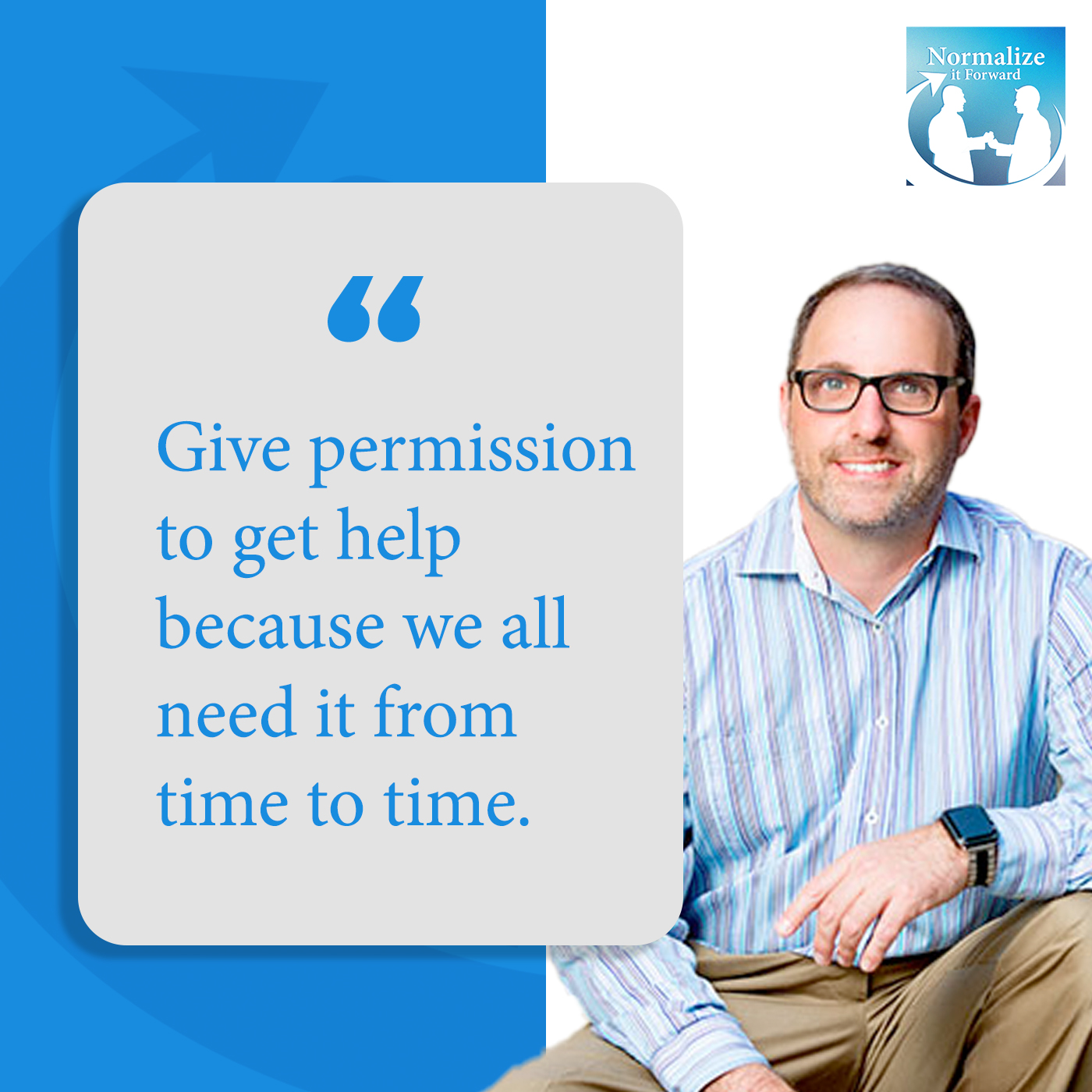
With the rise in the suicide rates amongst young people, I’m noticing that whenever I share my story and they get to interact back with me, they are eager to talk about these things. They are wanting, ready, and willing to talk about these things. It’s giving them that permission to go there and work on things. There’s a quote. It goes, “Pain is passed down until someone is ready to feel it and heal it.”
Pain is passed on until someone is ready to feel and heal it. Share on XI feel as though the reason why we’re seeing such an increase in suicide rates and suicidality especially amongst our younger generations is because we’ve evolved as a people group. We are learning from our parents and from their parents the things that they were taught and things that were passed down that are harmful, unhealthy, and dysfunctional.
There are several different factors as to why the suicide rates are so high. You have social media, access to the internet, and the digital era that we all live in. It’s the fact that these children and people in my generation, Gen Z, didn’t have a play-based childhood. We have a digital-based childhood. There’s so much out there that suggests reasons, clear indicators, causations, and things like that. I believe that the reason why we’re seeing such a large gathering or so much noise around this conversation is because the young people who are struggling, whenever they’re given that permission, it’s like they’ve been waiting for it. Does that make any sense?
Keeping Everything In
It makes total sense. I’ve experienced that as well when I’ve been doing presentations. I start talking about that and all of a sudden, hands go up. People are talking about some really private things because they haven’t had an opportunity to talk about them. I believe that a lot of young people walk around with these masks on and pretend. You referenced that a little bit. Parents tend to point fingers at things like social media. We’ll talk about the dangers of them, which I believe there are quite a few of them. They’re complicated in terms of how they affect kids. I wanted to ask you. In high school when you grew up in the midst of all of that or at the peak of some of that, tell me a little bit about what that was like for you in terms of that phase where you were keeping it all in.
I agree in the sense that parents want to find a solution. They want to find a reason or something to blame, so to speak. I relate to that. That was a part of my experience, especially whenever it came to my parents looking for reasons why my behavior was presenting in a different way or reasons why I became isolative and did not come out of my room. They did point fingers at, “It’s social media. It’s hormones. It’s puberty,” and all of these things.
Ultimately, I feel like the biggest thing that is not talked about enough is relationships in your home environment. A big reason why I felt so much fear and shame around my struggles and my emotional well-being was from the pressures that I was feeling from the external and then also that I was placing on myself internally. It’s so much easier and so much more accessible for people to cast judgment and for them to be critical of you, your choices, what you wear, how you speak, and what you choose to do. I feel like that’s a big reason why younger generations feel the need to create this pristine picture-perfect image and maintain that image. That way, Mom and Dad don’t automatically look to blame something and also, we’re protected from being put in a box of, “It’s social media. It’s teenage hormones.”
Teenagers don’t want to be put in boxes. They want autonomy. They want to feel like they’re valued and respected as humans. They want to feel like you hear them and see them. Unfortunately, a big problem is that disconnect where when a teenager is going through something stressful or maybe they’re dealing with a big feeling of fear that Mom and Dad always want to blame and then fix. That’s what I’m seeing as a reoccurring issue amongst the youth.
You said so much there and I’m going to pick on one word. That word is hear because I feel like a lot of families don’t do a great job of that. I like what you said. They see a problem and they want to fix it. A lot of times, I find myself saying to parents in session, “Slow down and listen because you’re going to hear certain things that you’re not hearing when you’re at warp speed and you’re trying to fix running down the hallway. Sometimes, what they need you to do, teenagers that is, is to not fix and to be a sounding board. They’re like, “My day was terrible. This kid said this, this teacher did this, and this thing happened.” Download and be like, “Tell us. It’s okay.”
Creating Shell Against Pressures
What a lot of adults, and I’ll speak for the adults in this zone, forget is that teenagers are still learning. They’re still learning about relationships. They’re still learning how to make friends and how to keep them. They’re still learning when to share and when not to share. I’m curious about your thoughts on this. I’ve seen kids that are getting complimented for being brilliant, beautiful, athletic, this or that and I almost can observe them creating more of a shell. They’re like, “You expect me to be brilliant. What happens when I don’t succeed?” I’m wondering about your thoughts on the topic of that type of pressure. Is it necessarily intended as pressure?
It’s a tricky line to teeter with because on one hand you want to validate, encourage, and empower a young person but it’s a fine line. What you’re not remembering and realizing is a lot of times, teenagers take the words of adults as fact and they feel like, “Now that they say this about me, that’s an expectation that I have to uphold.” You get into the space where they don’t necessarily always resonate with the compliment that you’re giving to them but they feel as though because you gave it to them, they own it and it’s their responsibility to maintain it.
I often tell people and encourage parents especially, “Get creative with how you’re reassuring and filling your kids’ cup. Compliment them. Assure them about things that no one can take away from them, what kind of person they are, and what makes them special and unique. Build up that sense of self around those things and not what they can do but who they are.”
For example, I’m thinking, “I’m so proud of you for showing integrity.” Encourage them when they’re being a good person and being kind.
Even encourage them to be comfortable being vulnerable with you and having that close relationship. Even encouraging them whenever they are having a meltdown, crying, and expressing all of the emotions that they’re feeling like, “I am so proud of you for being vulnerable. I am so encouraged and inspired by your vulnerability. This is a good thing. It feels good to cry.” You are reminding them, “I don’t expect you to be perfect all the time.”
I really try to emphasize to parents, “Your goal should not be to make your child’s path smooth and happy all the time. That’s unrealistic. Your goal should be to be able to have your kiddo feel everything and still be okay and also know that you are a safe space. They have to feel everything, still be okay, and know that you’re the safe space that they can come to.”
Parents should not aim to make their child’s path smooth and happy all the time. It is unrealistic. They should let children feel everything and know that they are in a safe space. Share on XThat has got to be written somewhere. I’ll say as a parent that a lot of parents fall into that trap of feeling like it is their job to remove obstacles and they’re going to ensure happiness. Much of what you’re saying resonates. As a therapist in session, when a young adult has allowed themselves a level of vulnerability and shared with me either a very private story, cried openly, or whatever it might be and I say to them, “Thank you for sharing,” they look back at me and think, “No one has ever said that to me.” I can’t tell you how many moments I’ve had like that. It’s a little shocking. I’m like, “Nobody has ever said that?”
I always get the same question whenever I present my story and host Q&As. I always get that one question, “What do you say when you don’t know what to say? When someone is spilling all of the hurt that they are feeling or they’re venting about a hard day, what do you say?” I always say, “Thank you so much for sharing.”
The first time I heard that from my therapist, it was revolutionary. It was groundbreaking. It feels so good to feel so safe with someone that you could be expressing what society deems as negative, bad emotions and you’re still worthy, valued, and loved and that it’s okay not to be okay. That is the essence of that quote. Saying to someone, “Thank you for sharing that,” takes care of everything.
It’s huge. From a young person’s perspective, young people are around mental health all the time. I try to get parents to understand that we are, too, as adults but some of us don’t know it. Young people are talking about it, which is awesome. It’s fantastic but it can also be overwhelming. When I say to a parent, “As your child’s going off to college, you should think about how they will respond if they have a friend who’s going through it.” I’ve had many parents over the years saying to me, “That won’t happen.” I’m like, “Statistically, it probably will.”
Bridging The Generational Gap
It’s a world that young adults live in that parents don’t necessarily want to understand. Once they start to understand, it makes a lot of sense that kids are dealing with a lot. They’re dealing with a ton. Even the basic concept of, “I’m okay but my really good friend isn’t, and that’s bothering me a lot.” I’m going back to that point you made about that question people ask you a lot of, “What do you say?” It’s important that young people understand the concept that it’s okay to not be okay. I take it a step further and say it’s pretty normal.
That’s one of the things that I’m hoping that the parent generation or the older generations can really recognize. Maybe the way that you were taught to deal with big feelings, stressors, frustrations, or fears wasn’t healthy. Maybe that was dysfunctional and you’ve been living in a state of fight or flight and the nervous system is all out of whack. You’re living in dysfunction. You’re not living. You’re reacting. I really hope that we can get to a place where the adults want to engage in this world that our youth are quite frankly in. They are in it.
A crucial change and shift that we need to see in order to make the suicide rates go down is engaging the older generation or the parent generation and encouraging them, “This is not something that you will ever escape. In fact, this is something that you’ve never dealt with so it’s understandable that you don’t want to and that it’s scary, but that makes it all the more evident that it’s necessary.” I see it all the time whenever I’m meeting with parents. I’m giving them advice and encouraging them that whenever they get some therapy or they learn ways to respond to their teen, it’s freeing. It’s so freeing to be able to learn the tools and the skills to be able to help your kid who is still learning and still experiencing things for the first time.
Truly, I hope that we can get to a place where parents shift that thinking and remember what it was like when they were teenagers. That breakup is the end of the world for her right now. You can’t toxic positivity it away and say, “That boy doesn’t matter. You’ll be over it in about a week.” We have to shift our way of supporting one another, and that’s generational. The way that you guys as parents encouraged you or discouraged you from opening up is generational so it carries on.
I love how you said that. There’s so much truth to that. I hear the phrase sometimes from families, “We don’t do that in our family. We don’t talk like that.” Whenever I hear that, I always think, “Their kids must be frozen.” The reality is it doesn’t matter if you’re male or female, what culture you’re from, or what area of the world you’re from. We’re all human beings. We all have feelings and we’re all going to feel all of them from time to time. The concept of giving permission to be able to talk about and discuss makes a person feel freer to be a human being and have those ups and downs, have good days and bad days, and not have to be this straight line, perfect robot of a person.
I second that. We’ve been talking about creating a different perspective or a different image in your mind of the true importance of mental health and mental health care and becoming equipped with the resources, skills, tools, and support so that way, you can maintain your mental wellness. That way, you’re not a ticking time bomb waiting for the next crisis to strike.
Unfortunately and tragically, that is how and why we’re losing so many young people to suicide. They’re ticking time bombs waiting for that moment of crisis, that breakup, that fight with Coach, that fight with Mom, that failed test, or that missed opportunity. They’re waiting for that crisis. When a crisis strikes, that is when horrible things happen. Unfortunately, teenagers are impulsive. My attempt was the result of a ticking time bomb and then a moment of crisis and I impulsively acted on it.
Many young people commit suicide because they are like ticking time bombs. They are just waiting for that one moment of crisis. Share on XWhen we look at the evidence that we have at hand, it always goes back to the family and the relationships that you have with your loved ones, especially the parent-child relationship or that relationship that you are maintaining. I always say we need to get to a way of thinking and existing that is based around connection over correction. They need rules, boundaries, and structures because they’re minors but we can’t have a healthy dynamic without healthy connections.
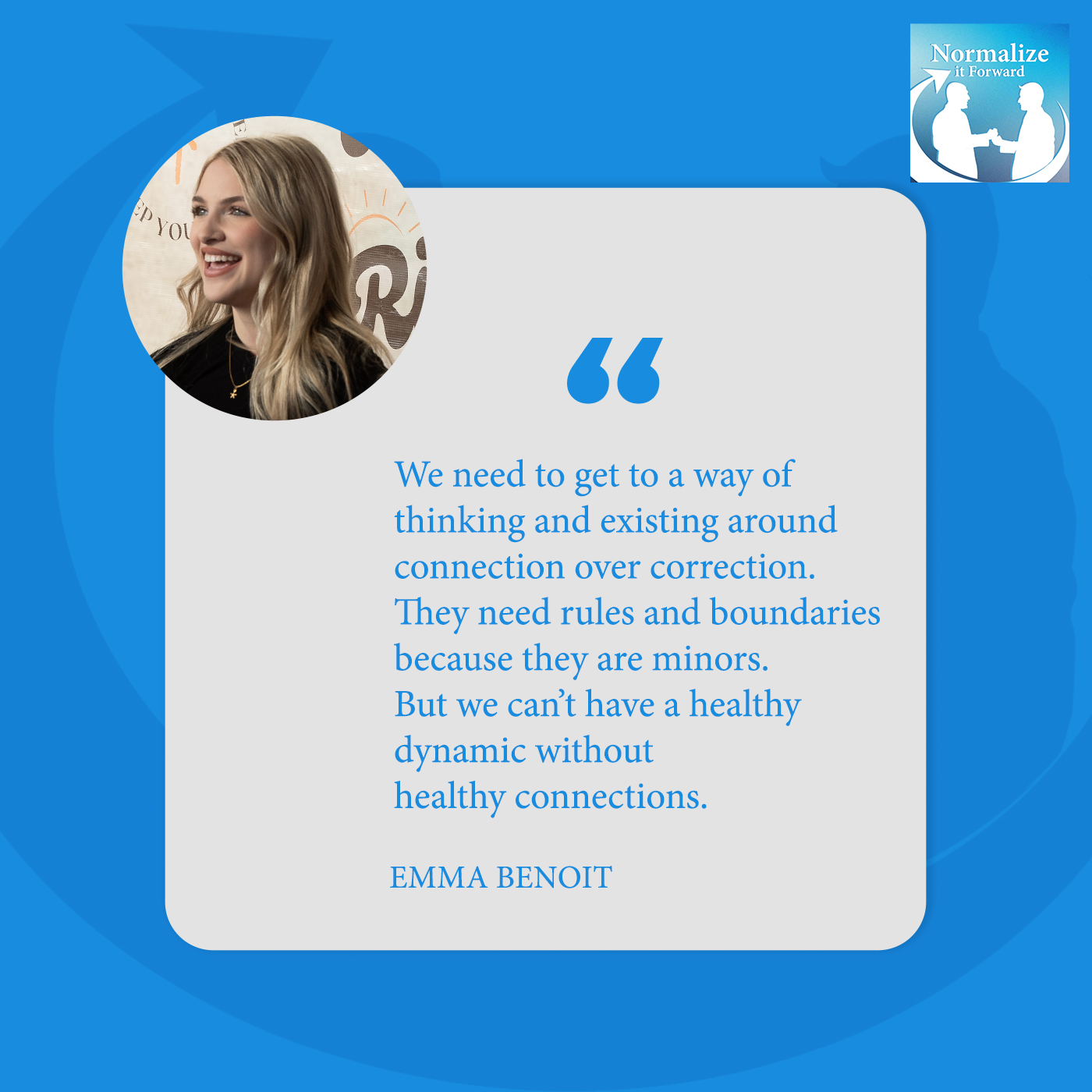
Connection is huge. In some ways, it’s everything. I know full well as a parent and as a therapist that it’s a hard question to ask your child, “Are you okay? Are you feeling safe? Have you had thoughts of hurting yourself?” That is not easy to ask your child but I always tell parents, “It’s a heck of a lot easier to ask that than to go to their funeral. It’s not even close.”
Recovering From A Suicide Attempt
Let me ask this and shift for a minute because my audience might be thinking about this. I want to give you a chance to shed some light on this. You mentioned that your attempt happened in 2016. You’re 24 years old. I wonder if there is a way to capture a little bit of your recovery both physically and mentally since your attempt.
I attempted suicide with a firearm. I was left with a spinal cord injury that left me paralyzed from the neck down. Not only did I have to navigate the mental and emotional recovery but I also had a pretty rigorous physical recovery as well. I had to pretty much relearn how to do everything for myself again and that was extremely challenging. When you lose connection from your brain to your body, it is the scariest thing. I wouldn’t wish that upon anyone. It’s frightening to be trapped within your own body.
I feel as though the physical journey that I had to go on taught me so many valuable lessons. It taught me, first and foremost, how to be truly grateful and practice gratitude. It taught me humility, recognizing where I was placing my worth, and restructuring that sense of self. It taught me patience and getting rid of that desire to control everything. I had no control, so it taught me a great deal of patience. Ultimately, having to endure such an intense, rigorous physical recovery equipped me with emotional resilience in a way to be able to come out with an even better and brand-new version of myself.
I recovered physically for about two and a half years. Typically with a neurological injury or a spinal cord injury, they only give you about two years to make your recovery. Science things. Nerves, regenerating, and things like that. I made a very stellar recovery in those two years. I was able to regain feeling and movement back into my whole body. I was once paralyzed. Now, I can use every muscle in my body and I’ve recovered to be able to walk short distances and live independently.
I use a wheelchair mostly day-to-day to get places efficiently and quickly but overall, I have adapted and overcome far more than what the medical team could have ever predicted. Going on that physical journey equipped me with emotional and mental stamina and stability. Having gone through all of that renewed my perspective entirely.
That’s amazing. First of all, thank you so much for sharing. That’s a lot to talk about. It’s a lot to go through. It’s a very personal piece to your world so I appreciate you telling my audience about it. Every time I’ve listened to you talk, I feel like you are a pioneer. You are a person who is leading the charge. You’re leading the charge for young people to give them an understanding of, “You can get through this thing called life. Things that you’re going through may seem really awful at the time.” You used the word grateful before. It’s like, “We need to be grateful for every moment we have here on earth and every opportunity that we’re given. It doesn’t mean life is always easy but we need to be grateful for that and keep pushing because there’s lots of good stuff to come.” I appreciate you sharing that.
Thank you for giving me the opportunity to. It’s really amazing to get to share my lived experience with people and see the impact that it has on them. When I get to do this live and in person for audiences, it truly is very healing. It’s therapeutic for me because I could have never predicted that this would become my life and my reality. I’m so fortunate for opportunities like these to hopefully encourage other young people to be a voice and be an advocate because it’s going to take all of us. If we want to see a change within our generation, we’re going to have to be the ones to lead the charge. I hope to be able to empower young people to do more of it.
If we want to see a change within our generation, we must be the ones to lead the charge. Share on XGuest Nomination And Closing Words
You already have and I know you’ll continue to, so thank you so much for that. Let me close by asking. We have a template of wanting the conversation to continue for all of those reasons and keep the conversation moving forward. What I usually ask of my guests is if they have a friend, a coworker, or a relative, someone who they’d like to nominate for me to have on the show going forward. I would love to get your thoughts on that. Does anyone come to mind?
Yes. There are a couple of people. The first one that I would encourage you all to have on your show next is Dr. Greg Hudnall. He is the Founder and CEO of a program called Hope Squad. Hope Squad is a peer-to-peer based program that exists in schools. It equips not only the students but the teachers as well with training similar to QPR, which I’m not sure your audience is familiar with. It’s a suicide mental health prevention training. QPR stands for Question, Persuade, Refer. The students are empowered to use their voice and empathy to be peer support on campus.
It’s an incredible, phenomenal program, one that I have had the great privilege of getting to share and promote across the country. Since the inception of sharing my story, I’ve been able to inspire over 30 Hope Squads to start across the country throughout all the different states that I’ve gotten to see. It’s an incredible program. He would be a phenomenal guest for your audience. He has a lot of great insight. His perspective is certainly incredible. I would say Dr. Greg Hudnall.
I’ll get his info from you offline. We’ll have Dr. Greg on. I’d love to talk to him about his perspectives. Certainly, his program sounds amazing. It sounds phenomenal. Thank you. I appreciate you bringing him up. I wanted to thank you. Your thoughts on this topic are truly amazing. I was thinking earlier, “My audience might be reading this and they have so many questions for Emma.” They might want to thank you as well.
For them, I want to tell you thank you for making the time. Thank you for being vulnerable. Thank you for doing what you do because there are probably people you’re touching you don’t even realize. A lot of young people will tune in to things like this in private and they’ll say to themselves, “I’m like that. Maybe I need to make some changes.” Maybe some parents are reading and they might think the same thing. That’s my big hope of having someone like you on the show. I want to thank you for making the space, coming on, and sharing with our audience.
Thank you so much for the opportunity. It’s such an honor to get the chance to share. I’m hopeful too. We share the same hope with the outcome of getting together to share and have a genuine conversation. I’m very inspired by all that you do. I’m hopeful as well that we’ll be able to help people that we won’t even know about.
Thanks again. You have yourself a wonderful rest of the evening. We’ll talk soon.
That sounds good. Bye.
Take care.
Important Links
About Emma Benoit
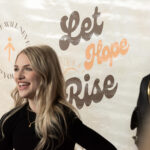 Emma Benoit became extremely passionate about suicide prevention after surviving a suicide attempt in 2017, the summer before her senior year of high school. At the time, she was a popular varsity cheerleader with a supportive family and lots of friends, but quietly struggled with anxiety and depression, too ashamed to share her pain with family or friends. Her attempt resulted in a spinal cord injury that left her paralyzed but helped her find faith and purpose and propelled her on a mission to use her painful experience and miraculous recovery to help others.
Emma Benoit became extremely passionate about suicide prevention after surviving a suicide attempt in 2017, the summer before her senior year of high school. At the time, she was a popular varsity cheerleader with a supportive family and lots of friends, but quietly struggled with anxiety and depression, too ashamed to share her pain with family or friends. Her attempt resulted in a spinal cord injury that left her paralyzed but helped her find faith and purpose and propelled her on a mission to use her painful experience and miraculous recovery to help others.
A few months after her attempt, Emma started the website liferejuvenated.org, a blog to share her story and recovery journey in an effort to help other teens who are struggling. In early 2018, Emma began working on a documentary film called My Ascension, released for limited audiences in 2021. My Ascension chronicles her recovery journey and advocacy work while addressing the youth suicide epidemic.
Emma serves as an Ambassador for Living Works, the world’s leader in suicide prevention training and has been featured on numerous news programs, radio shows and podcasts. In December of 2020, Emma was a featured guest on the “Red Table Talk” talk show, and in 2022, Emma made appearances as a guest on “Ask Dr. Drew” and “The Dr. Phil Show”.
Emma is an uplifting speaker who has shared her powerful story and message with thousands of people at in-person and virtual conferences and events including but not limited to: Living Works and California Department of Education Youth Summit, National Federation of Families for Children’s Mental Health Conference, LSU School of Social Work Conference, Arkansas Youth Mental Health Conference, Hope Rising Suicide Prevention Summit, Wyoming Office of Attorney General and Victim Services Joint Symposium, The Nebraska School for Mental Health Conference, David Lawrence Centers for Behavioral Health, and the Hope Squad National Conference. Emma is a 2018 graduate of Dutchtown High School, whose strength and motivation are
rooted in her strong faith and supportive family.

